Quotes & Sayings About Renaissance Literature
Enjoy reading and share 15 famous quotes about Renaissance Literature with everyone.
Top Renaissance Literature Quotes
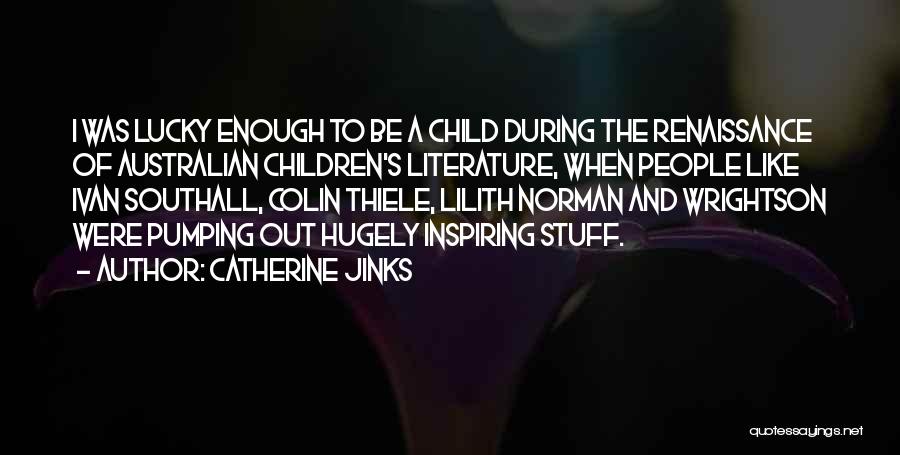
I was lucky enough to be a child during the renaissance of Australian children's literature, when people like Ivan Southall, Colin Thiele, Lilith Norman and Wrightson were pumping out hugely inspiring stuff. — Catherine Jinks
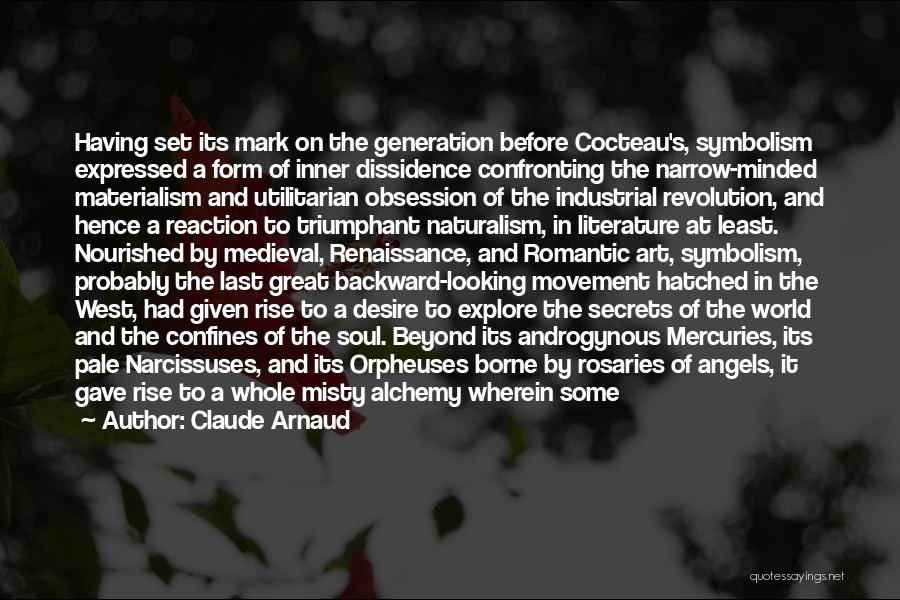
Having set its mark on the generation before Cocteau's, symbolism expressed a form of inner dissidence confronting the narrow-minded materialism and utilitarian obsession of the industrial revolution, and hence a reaction to triumphant naturalism, in literature at least. Nourished by medieval, Renaissance, and Romantic art, symbolism, probably the last great backward-looking movement hatched in the West, had given rise to a desire to explore the secrets of the world and the confines of the soul. Beyond its androgynous Mercuries, its pale Narcissuses, and its Orpheuses borne by rosaries of angels, it gave rise to a whole misty alchemy wherein some found their way into esotericism and even into the religious, since the Universe was only the symbol of another world into which entrance was gained not only through poetry, spiritualism, dreams, and the Ideal, but also via the play of analogies and the study of ciphers. — Claude Arnaud
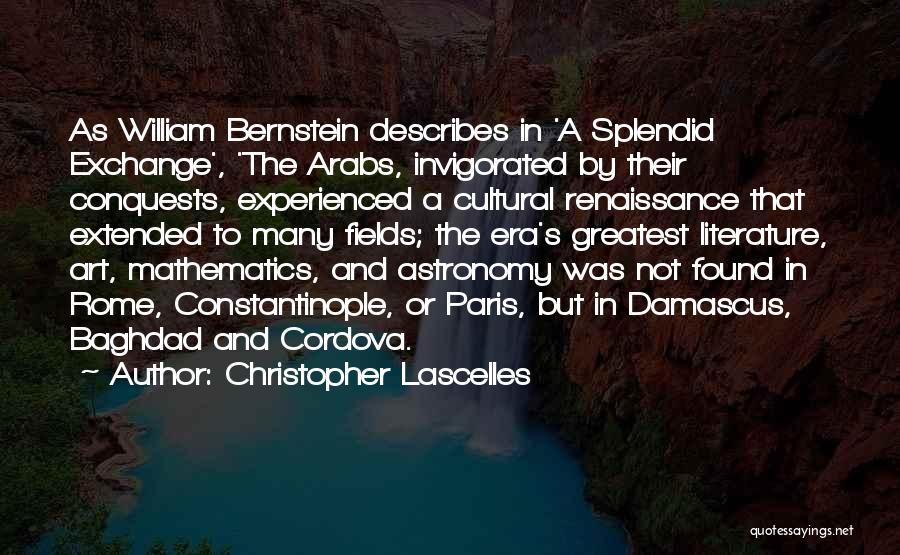
As William Bernstein describes in 'A Splendid Exchange', 'The Arabs, invigorated by their conquests, experienced a cultural renaissance that extended to many fields; the era's greatest literature, art, mathematics, and astronomy was not found in Rome, Constantinople, or Paris, but in Damascus, Baghdad and Cordova. — Christopher Lascelles
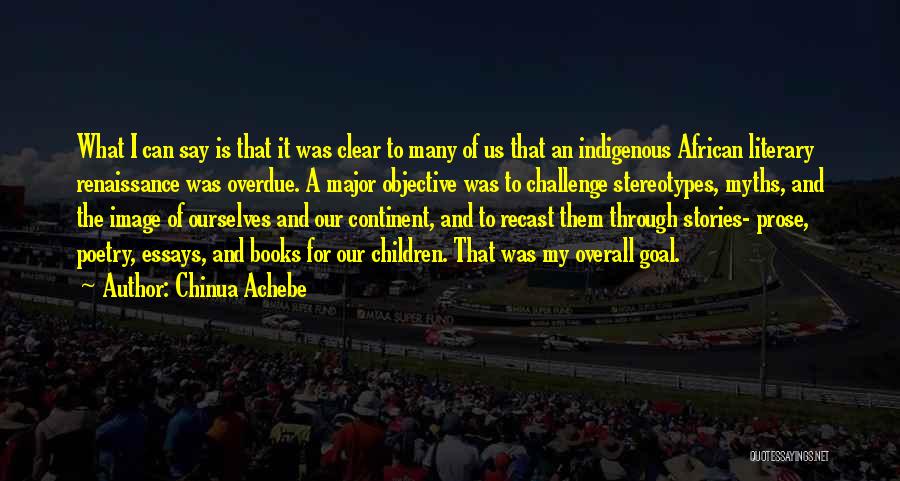
What I can say is that it was clear to many of us that an indigenous African literary renaissance was overdue. A major objective was to challenge stereotypes, myths, and the image of ourselves and our continent, and to recast them through stories- prose, poetry, essays, and books for our children. That was my overall goal. — Chinua Achebe
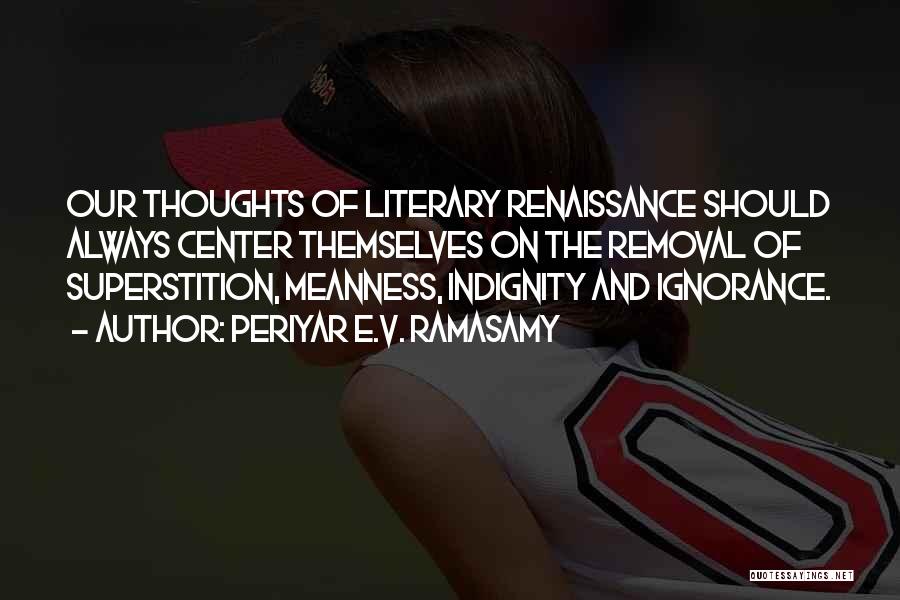
Our thoughts of literary renaissance should always center themselves on the removal of superstition, meanness, indignity and ignorance. — Periyar E.V. Ramasamy
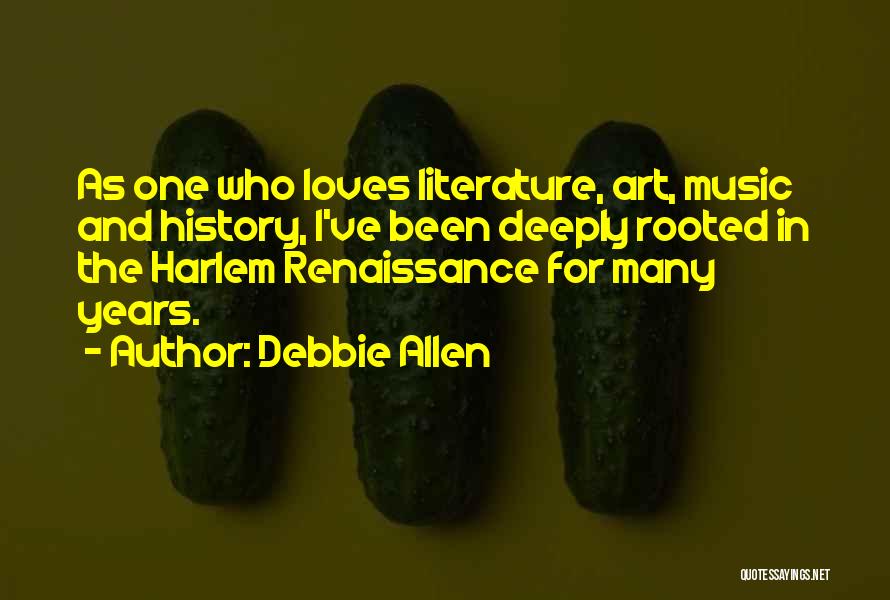
As one who loves literature, art, music and history, I've been deeply rooted in the Harlem Renaissance for many years. — Debbie Allen
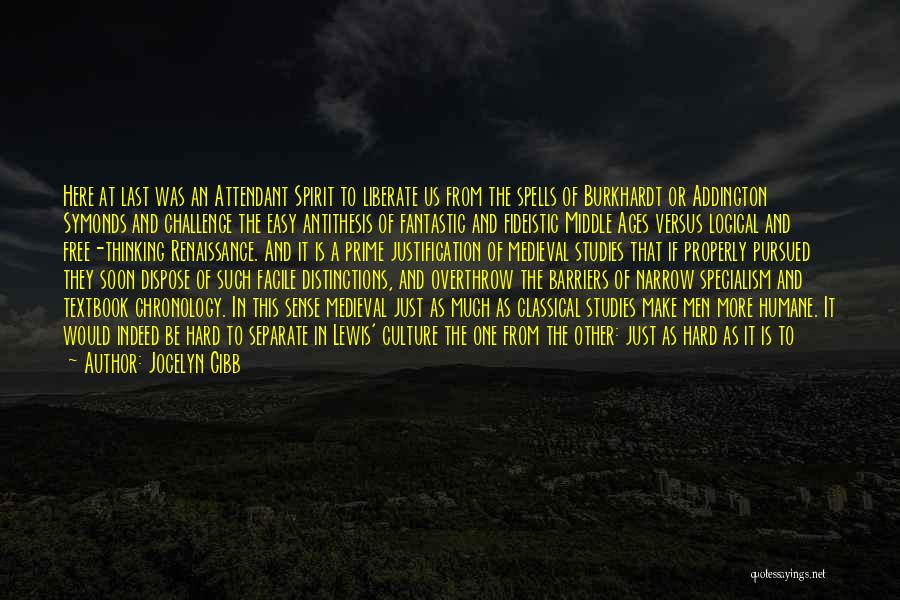
Here at last was an Attendant Spirit to liberate us from the spells of Burkhardt or Addington Symonds and challenge the easy antithesis of fantastic and fideistic Middle Ages versus logical and free-thinking Renaissance. And it is a prime justification of medieval studies that if properly pursued they soon dispose of such facile distinctions, and overthrow the barriers of narrow specialism and textbook chronology. In this sense medieval just as much as classical studies make men more humane. It would indeed be hard to separate in Lewis' culture the one from the other: just as hard as it is to understand the Middle Ages themselves without knowing classical literature or the Renaissance without knowing the Middle Ages. This continuity of literature and of learning Lewis not only asserted but embodied. — Jocelyn Gibb
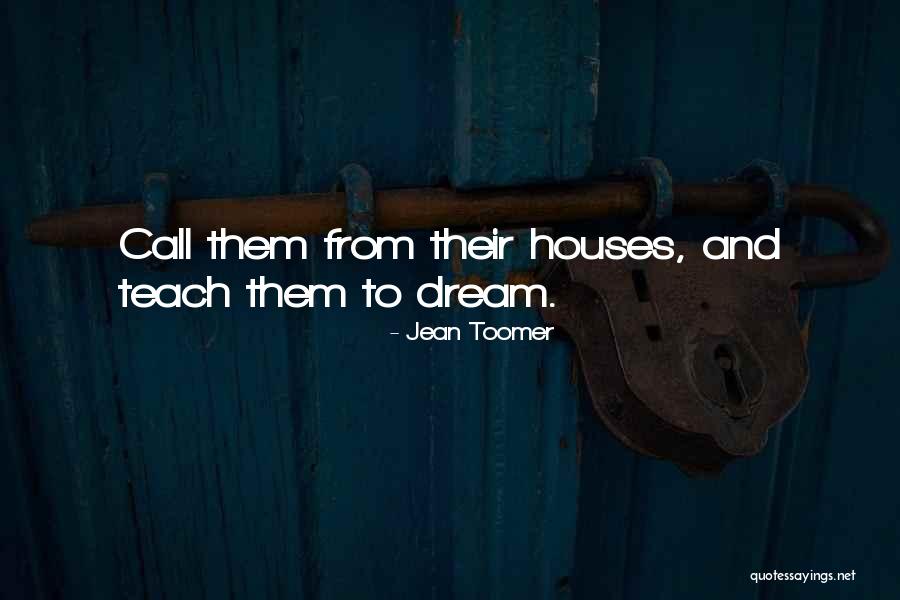
Call them from their houses, and teach them to dream. — Jean Toomer
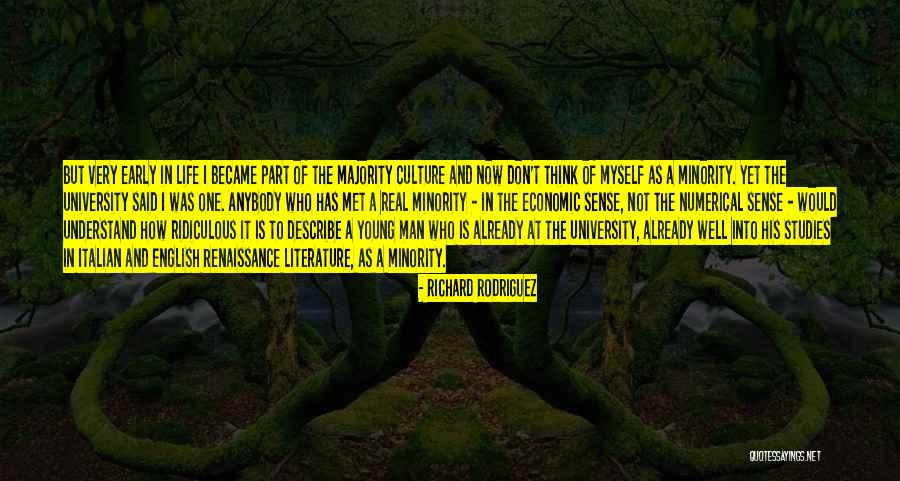
But very early in life I became part of the majority culture and now don't think of myself as a minority. Yet the university said I was one. Anybody who has met a real minority - in the economic sense, not the numerical sense - would understand how ridiculous it is to describe a young man who is already at the university, already well into his studies in Italian and English Renaissance literature, as a minority. — Richard Rodriguez
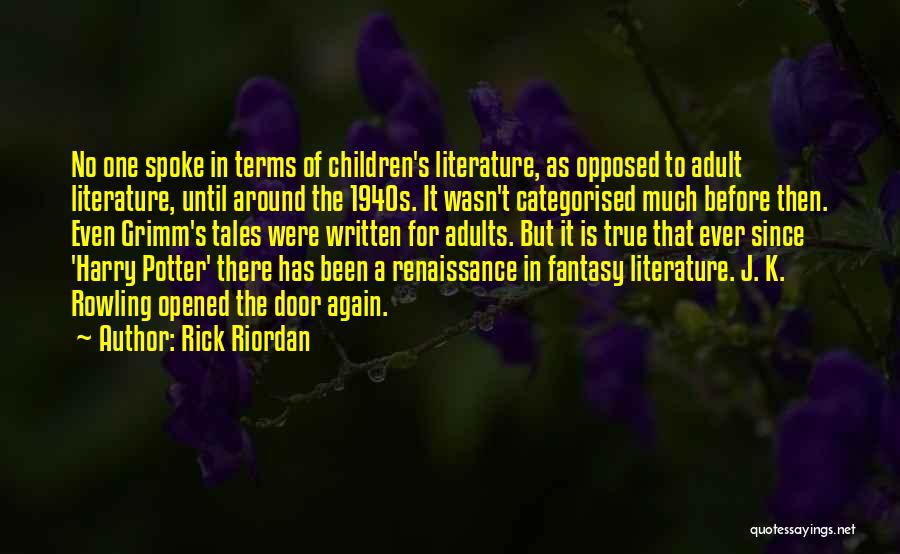
No one spoke in terms of children's literature, as opposed to adult literature, until around the 1940s. It wasn't categorised much before then. Even Grimm's tales were written for adults. But it is true that ever since 'Harry Potter' there has been a renaissance in fantasy literature. J. K. Rowling opened the door again. — Rick Riordan

This is the difference between U.S. Latina/o letters and Latina/o Letters from Latin America: In the United States, writing is a business. In Latin America, writing is life and death. — Daniel Pena
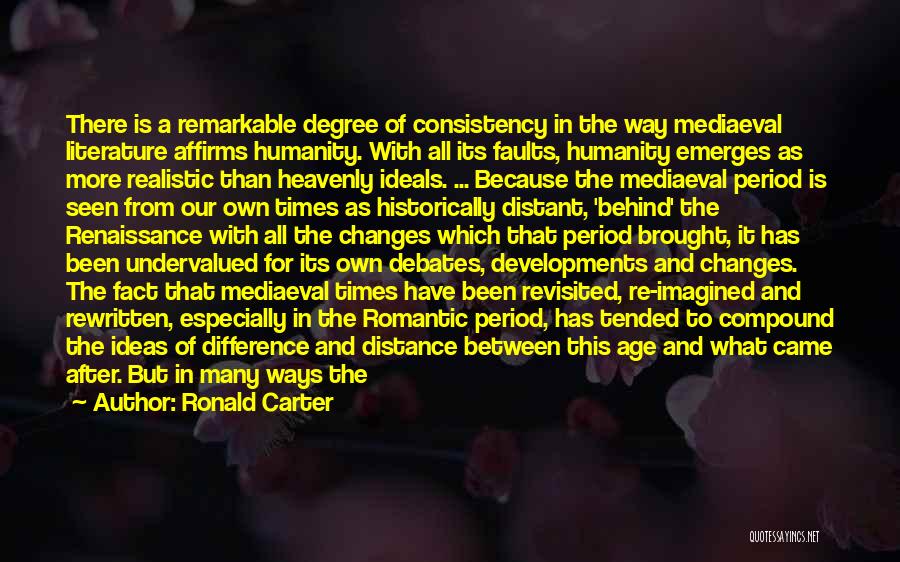
There is a remarkable degree of consistency in the way mediaeval literature affirms humanity. With all its faults, humanity emerges as more realistic than heavenly ideals.
...
Because the mediaeval period is seen from our own times as historically distant, 'behind' the Renaissance with all the changes which that period brought, it has been undervalued for its own debates, developments and changes. The fact that mediaeval times have been revisited, re-imagined and rewritten, especially in the Romantic period, has tended to compound the ideas of difference and distance between this age and what came after. But in many ways the mediaeval period presages the issues and concerns of the Renaissance period and prepares the way for what was to come. — Ronald Carter
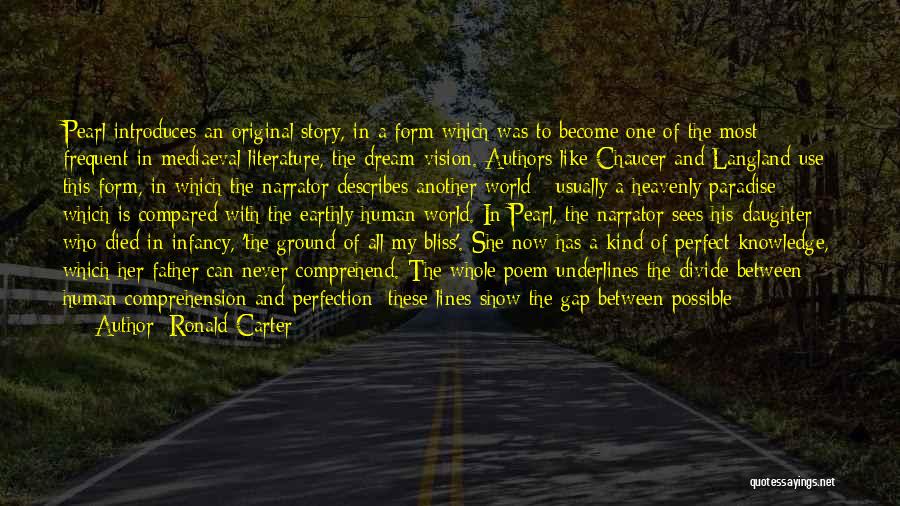
Pearl introduces an original story, in a form which was to become one of the most frequent in mediaeval literature, the dream-vision. Authors like Chaucer and Langland use this form, in which the narrator describes another world - usually a heavenly paradise - which is compared with the earthly human world. In Pearl, the narrator sees his daughter who died in infancy, 'the ground of all my bliss'. She now has a kind of perfect knowledge, which her father can never comprehend. The whole poem underlines the divide between human comprehension and perfection; these lines show the gap between possible perfection and fallen humanity which, thematically, anticipate many literary examinations of man's fall, the most well known being Milton's late Renaissance epic, Paradise Lost. — Ronald Carter
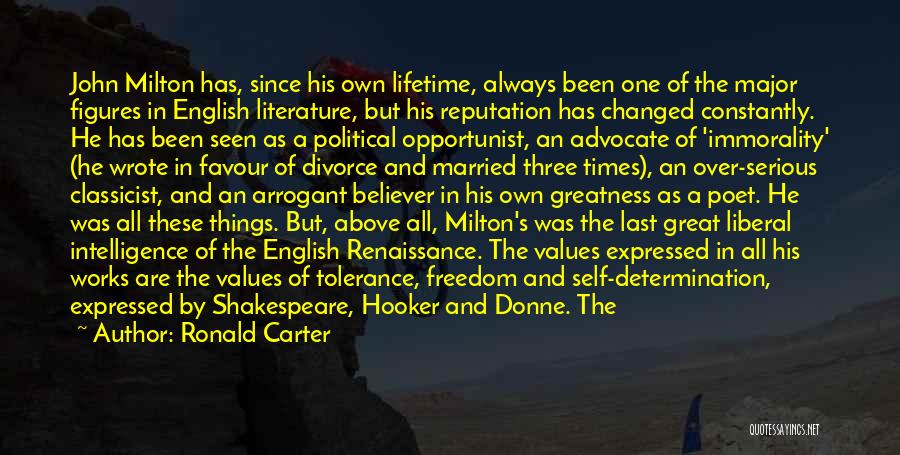
John Milton has, since his own lifetime, always been one of the major figures in English literature, but his reputation has changed constantly. He has been seen as a political opportunist, an advocate of 'immorality' (he wrote in favour of divorce and married three times), an over-serious classicist, and an arrogant believer in his own greatness as a poet. He was all these things. But, above all, Milton's was the last great liberal intelligence of the English Renaissance. The values expressed in all his works are the values of tolerance, freedom and self-determination, expressed by Shakespeare, Hooker and Donne. The basis of his aesthetic studies was classical, but the modernity of his intellectual interests can be seen in the fact that he went to Italy (in the late 1630s) where he met the astronomer Galileo, who had been condemned as a heretic by the Catholic church for saying the earth moved around the sun. — Ronald Carter
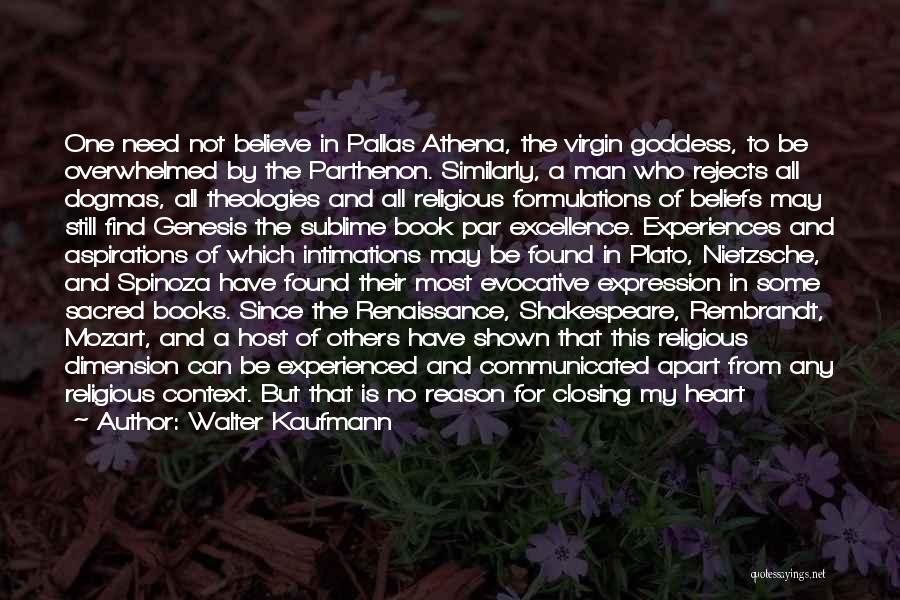
One need not believe in Pallas Athena, the virgin goddess, to be overwhelmed by the Parthenon. Similarly, a man who rejects all dogmas, all theologies and all religious formulations of beliefs may still find Genesis the sublime book par excellence. Experiences and aspirations of which intimations may be found in Plato, Nietzsche, and Spinoza have found their most evocative expression in some sacred books. Since the Renaissance, Shakespeare, Rembrandt, Mozart, and a host of others have shown that this religious dimension can be experienced and communicated apart from any religious context. But that is no reason for closing my heart to Job's cry, or to Jeremiah's, or to the Second Isaiah. I do not read them as mere literature; rather, I read Sophocles and Shakespeare with all my being, too. — Walter Kaufmann





